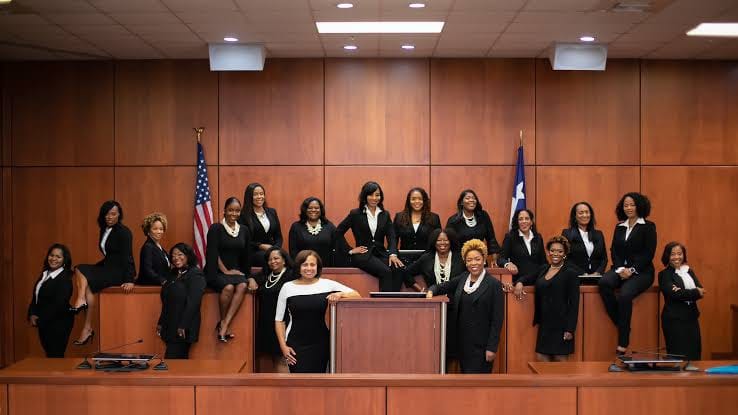BLACK WOMEN’S RIGHT: SAVING JUSTICE

By Dr. Jim Fairbanks (fairbanks.james@yahoo.com)
We can celebrate that so many Black women in recent years have found their victory in telling their stories of fighting back against the oppression of the intersectionality of race, class and gender. So, let’s go back to Angela Davis’ 1981 seminal book “Women, Race and Class” that tells the history of race, class and gender from the beginning of America. For those new to this analysis, Davis quotes Elizabeth Gurley Brown in 1948, “Black women were generally caught in a threefold bond of oppression … as Negroes, as workers, and as women.”
During slavery, despite the “numerous accounts of the violent repression overseers inflicted on women, it must be inferred that she who passively accepted her lot as a slave was the exception rather than the rule.” “They resisted the sexual assaults of White men, defended their families, and participated in work stoppages and revolts. They poisoned their masters, committed other acts of sabotage, joined maroon communities and frequently fled north to freedom … Davis tells of the ultimate sacrifice/resistance of Margaret Garner, a fugitive slave who killed her own daughter when slave catchers caught her, so her child would never know what a woman suffers as a slave. (a story accounted in Tony Morrison’s book Beloved).”
Davis recounts the belief of White woman suffrage leaders Elizabeth Stanton and Susan Anthony, as well as the most famous American preacher of the day, the White Rev. Beecher of Brooklyn, all supposedly anti-slavery leaders, but who opposed Black men getting the vote in 1870 before White women should get the vote. At the famous 1848 founding of the women’ suffrage movement at the Seneca Falls Convention, no Black women attended. Opposition was voiced by the White Angelina Grimke, who said, “I want to be identified with the Negro; until he gets his rights, we shall never have ours.”
Davis tells of the Black woman Maria Stewart, who ten years before Seneca Falls, was the first woman ever to address audiences of both men and women. She said, “What if I am a woman?
In 1795, the Black women Lucy Prince successfully defended a land claim, becoming the first woman to argue a case before the Supreme Court.
“Millions of Black people, and especially the women, were convinced that emancipation was the coming of the Lord.” (Just as I argue that Reparations is the Second Coming of Jesus).
At liberation, “Black people were not giving vent to religious frenzy. They knew exactly what they wanted: land and the ballot, and they were consumed with the desire for schools.” How different are these goals than the suffrage movement of that time. And still today, the issues of Black women are different from those of White women, such as poverty, food, education, jobs, racism.
Davis mentions some history from New York City:
There was the 1863 Draft Riots when mobs of White men killed hundreds of Black people, including burning down the only shelter in NYC for Black women and their children.
There were about 200 street corner markets, or slave markets, in Brooklyn and the Bronx in the 1940s, “where White women could take their pick from the crowds of Black women seeking work, who were said to work some 72 hours a week, receiving the lowest wages of all occupations.”
There was the early 1950s population control practice of the United States to sterilize Puerto Rican woman through the opening of over 150 birth control clinics in Puerto Rico, “By the 1970s over 35% of all Puerto Rican women of childbearing age had been surgically sterilized.” (I should mention the charge that the involuntary sterilization of women continued up until the 1970s at Lincoln Hospital in the Bronx).
Davis provides a solution for working women in her advocacy for The Wages For Housework Movement advocating free and socialized child care, meal preparation, and housework for working women.
My favorite personal moment about Angela Davis was when I was a minister in rural Indiana in the late 1960s. I visited my ultra conservative Congressman Meyers. When he asked me what were my concerns, I told him I wanted the radical slogan of the time, “Free Angela”, who had been wrongly fired as a California professor and wrongly indicted during the time of Ronald Reagan. So powerful was the national “Free Angela” movement that she was finally exonerated.
Standing on the shoulders of such Black women, a growing and powerful movement of Black women’s rights and equity is necessary today!












